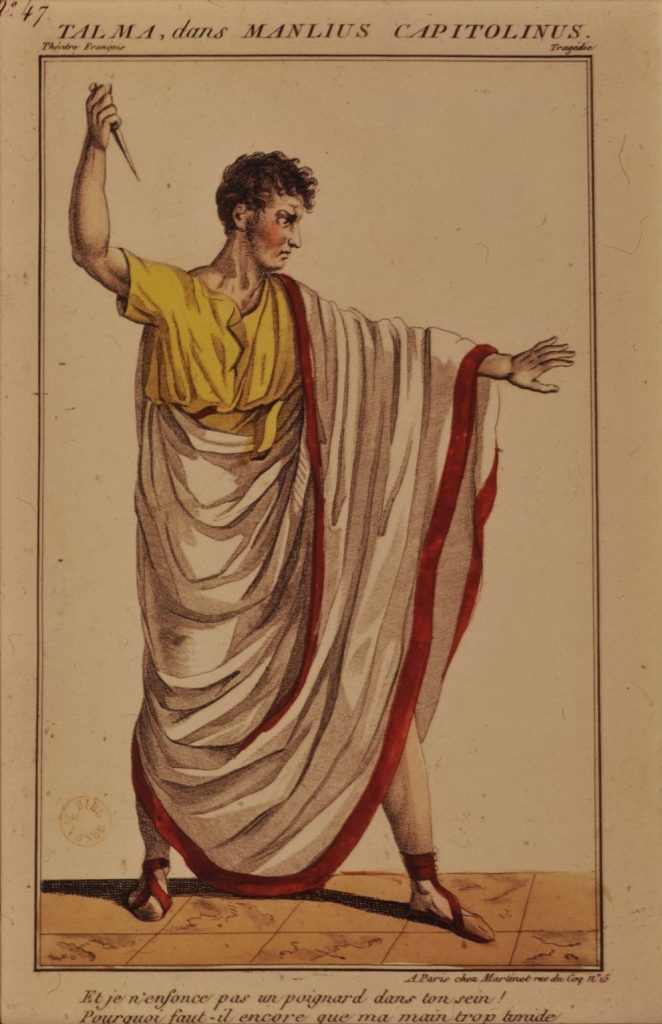
Talma holds an exceptional status among the actors of the Comédie-Française. He was able to survive the succession of regimes, from the Monarchy through the Revolution, the Empire and the Restoration.
Almost immediately leaving behind the career as a dentist that his father had chosen for him, he made his debut at the Comédie-Française in 1787, with Séide in Voltaire’s Mahomet and became a member in 1789, in the role of Charles IX by Marie-Joseph Chénier who chose him for it. He was involved in the upheavals in the theatrical world and shook it up in 1790 by playing Proculus in Voltaire’s Brutus, he discarded the traditional wig to don a real toga designed by his friend David. The drapery, the cut and the movements of Ancient Roman clothes became his signature in tragic roles. A politically engaged performer, he was not content simply to play his part but sought to give tragedy a sense of historical and political drama. A faithful and intimate friend of Napoleon Bonaparte, he made himself a spokesman for the latter. After the defeats of 1804, came more success. At his request, authors like Ducis, Lemercier and Arnault wrote parts especially designed for him to play madmen, visionaries, and Shakespearian melancholiacs that introduced Romanticism to the theatre.
In his career of thirty eight years, Talma created seventy roles.
“The Theatre-Francais, the Vaudeville, the Varietes, the Opera-Comique relieved him of some sixty francs, although he always went to the pit. What student could deny himself the pleasure of seeing Talma in one of his famous roles? Lucien was fascinated by the theatre, that first love of all poetic temperaments; the actors and actresses were awe-inspiring creatures; he did not so much as dream of the possibility of crossing the footlights and meeting them on familiar terms.“
Honoré de Balzac, Illusions perdues, 1843 (Translation Ellen Marriage)

